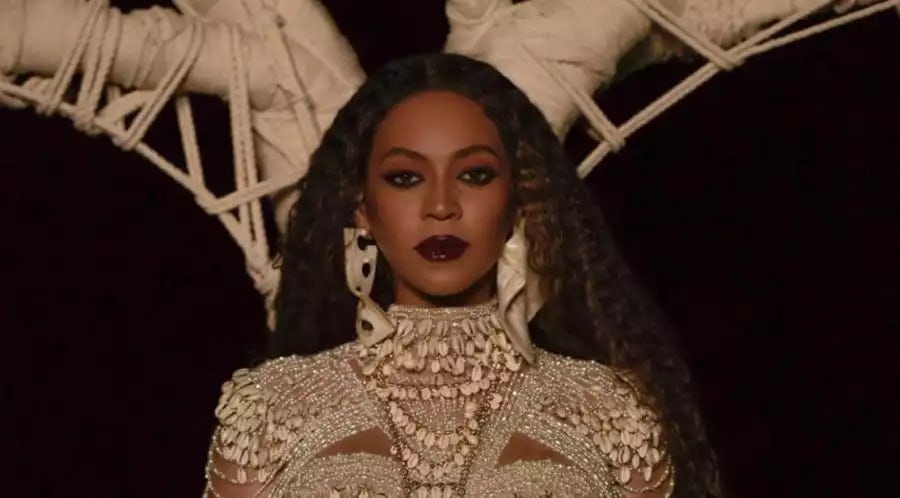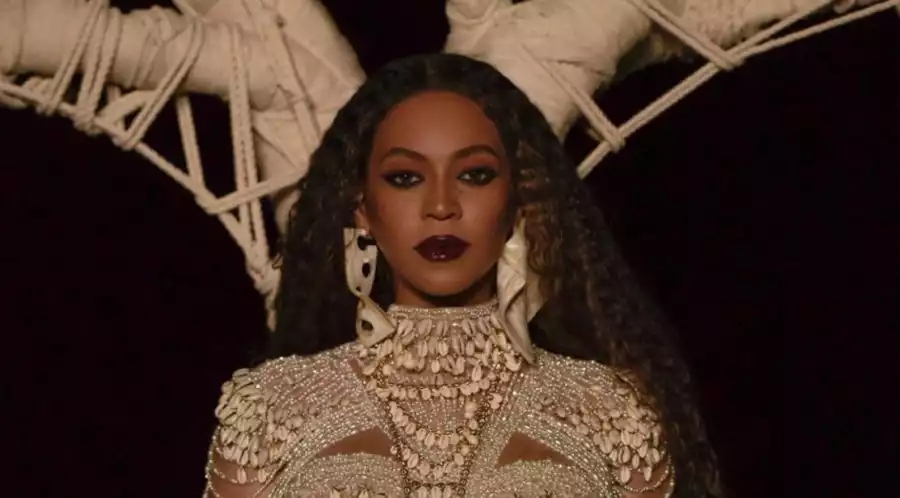The world’s biggest pop star channels BLM through her latest visual album
Black is King; Beyoncé’s second visual album released last month, has found itself at the centre of the year’s most important social movement – Black Lives Matter. Intended as a companion to the soundtrack ‘Queen Bey’ curated for The Lion King remake in 2019. Already receiving ample praise for its evocative imagery and sound – this album celebrates black heritage and looks to right the wrong done by many executives in history that have robbed material from black creatives.
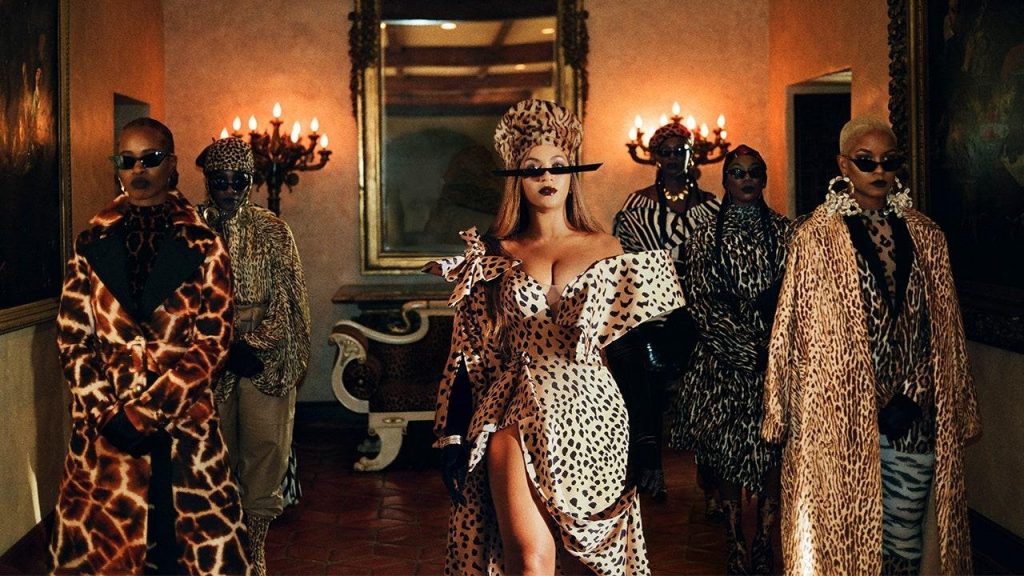
The inspiration for the album came whilst she was recording for the voice of Nala in The Lion King and Beyoncé was told that the composer of the song, The Lion Sleeps Tonight (a track formerly known as Mbube originally by South African music legend Solomon Linda) was never credited nor given royalties for the iconic tune in the original Disney animation. Indignant – the world’s most successful pop star set out to right this wrong as it reflects a long and complicated history the black community has with cultural exploitation.
She vowed to make a full-length film, with no animations or lions the next time around (although she kept dialogue from The Lion King remake peppered throughout), that celebrated the value and contributions of black people. Filmed in Ghana, Nigeria and South Africa this visual album encompasses many famous black faces (Pharrell, Kelly Rowland, Naomi Campbell, and Lupita Nyong’o all make appearances) and delivers a show-stopping performance nearly ninety minutes long steeped in black culture.
With Black Is King, Beyoncé raises important social issues; confronting colonialism, highlighting the struggle for racial equality and brings attention to incredible African artists such as Shatta Wale, Yemi Alade, and Tiwa Savage. Utilising the immense power of her global platform as a 24-time Grammy winner she pays a celebratory homage to Africa as the homeland to where many black people can trace their roots and the incredible young talents of the continent.
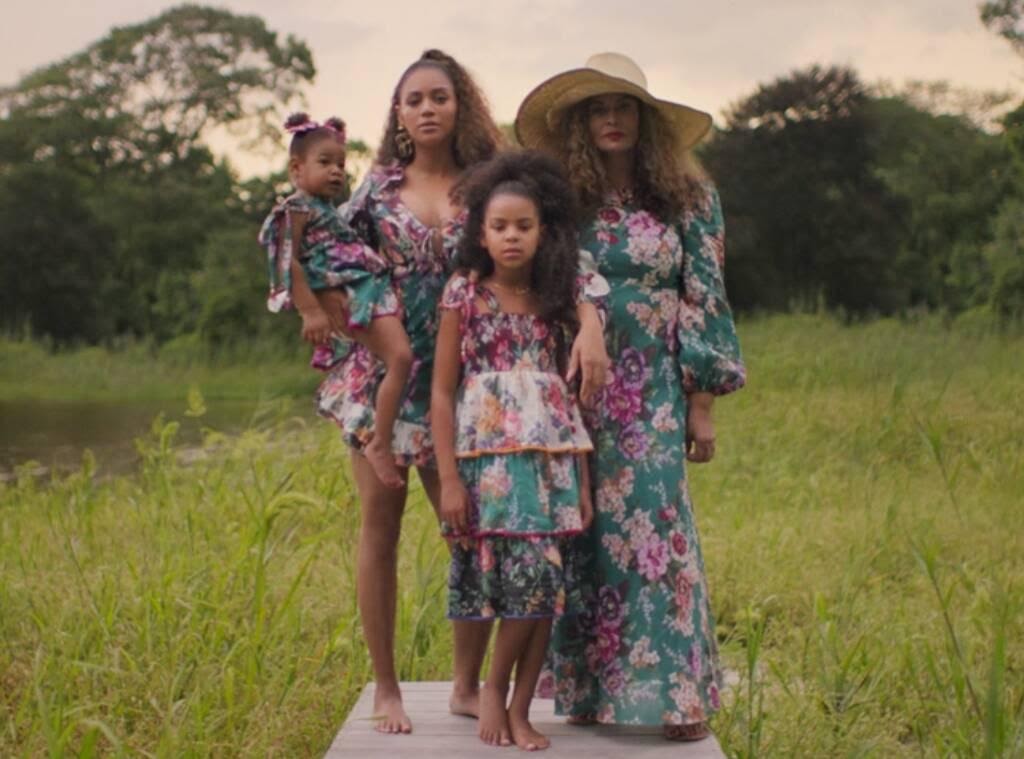
Album Review
Overall, the visual album is rife with poetry and impactful statements about empowerment – ‘Let black be synonymous with glory,’ Beyoncé gently utters in a beautifully melodic introduction, followed directly by Bigger, where African heritage and rituals are displayed as she sings to the viewer about how our lives are ‘bigger’ than we think.
Certainly Beyoncé is never one to bite her tongue on issues that matter, so she pulls out the stops to make poignant references to police brutality, mass demonstrations and protests that are shaking the globe to right centuries-old injustices. She portrays black figures as royalty, evoques religious symbols (hinting at the fact that Jesus Christ was born in Bethlehem, Jerusalem, and was most likely that he was dark-skinned) and exemplifies dignity and majesty for all races.
Contrastingly, Nile, a track that evidently refers to the river that snakes throughout Africa, has a particular scene where the colour white is seen everywhere. She is dressed in all white with the lower part of her face also covered in white and the men standing behind her, carrying a coffin, also both appear as white. The viewer is left to wonder if the singer is attempting to portray the perpetual face-off between black versus white people in the West – or if she is connoting the purity and innocence of black people that is otherwise ignored by a prejudicial majority?
After Mood 4 Eva brings a transition combined of both black and white imagery where adults and children are seen dressed in black and white – the colours of chess pieces. Perhaps representative of the current political landscape, or the representation of dark and light; a narrated voice confirms; ‘This ongoing exchange between dark and light,’, directly alluding to the ongoing struggle for racial equality in a world becoming ever more divided.
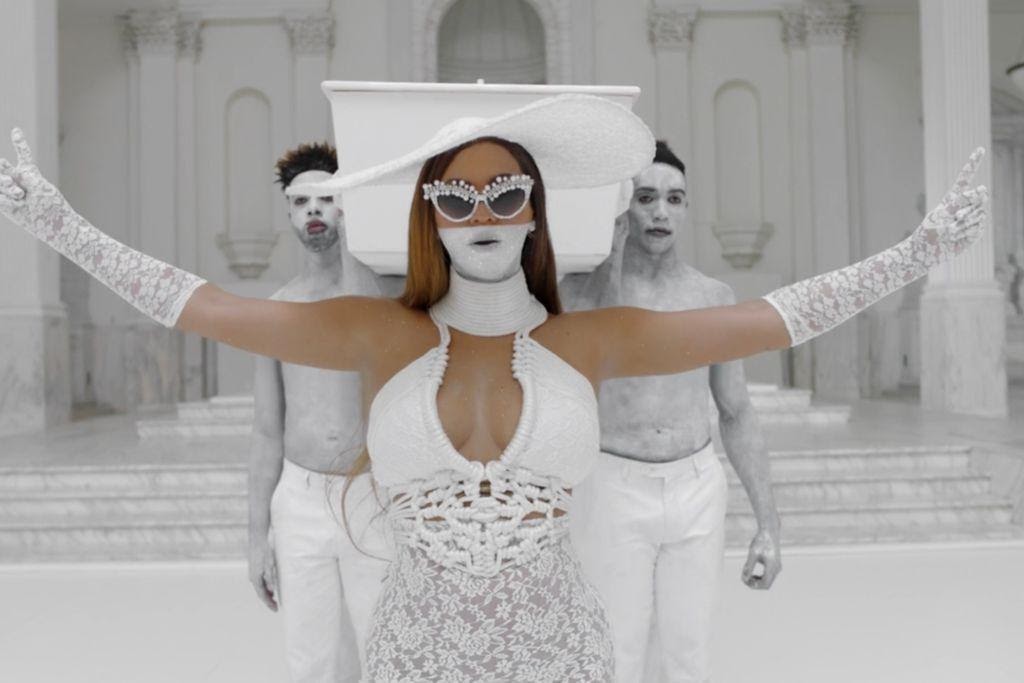
In a collaborative track featuring Jay-Z, European concepts are once again replaced by black subjects, reminding fans of a similar stunt they pulled with APES**T. A white butler is also prominently placed in the shot, directly making a historical reference to a position that was often fulfilled by black slaves.
We see this same role-reversal in Keys to the Kingdom (where black men are seen as judges, wearing the characteristic court dress and white wig) and Brown Skin Girl. The short film depicts a debutante ball, typical of young white women to attend, but in this case shows mainly black women. Importantly, this is where celebrated black women like the artist herself make their appearance, emphasising that they are just as worthy of being presented as many white women have been in debutante history. In shot we see Kelly, Naomi, Lupita in all their glory and a rare glimpse of Blue Ivy, who closes off the song by likening brown skin to pearls.
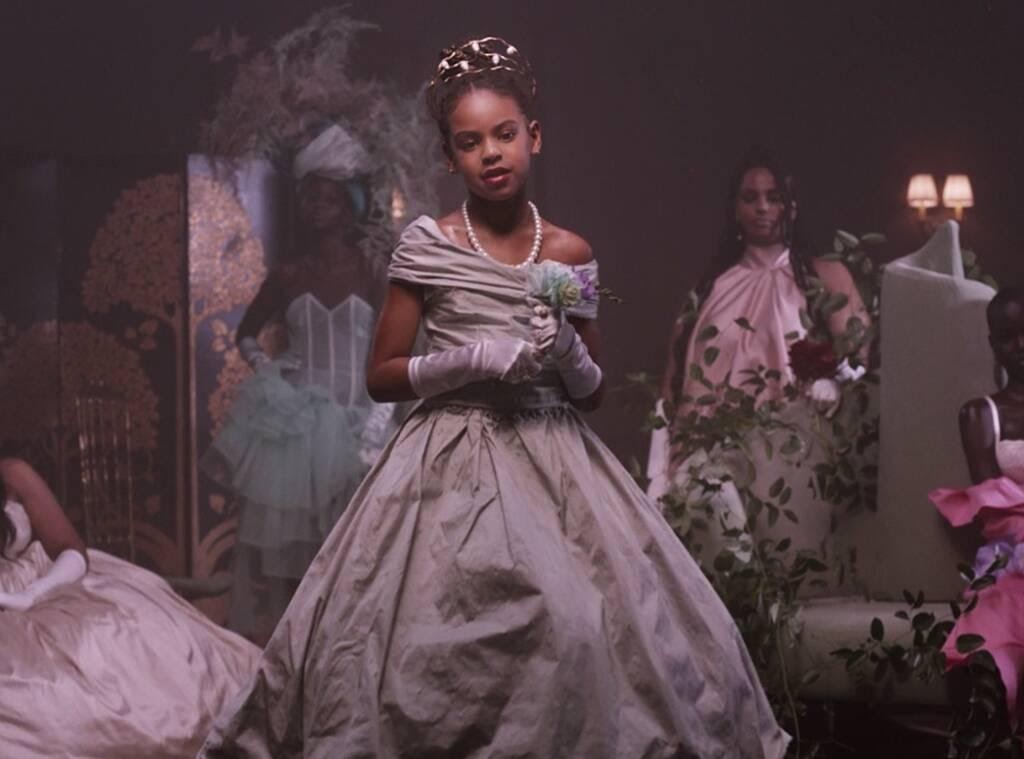
An abundance of colourful, clever, dynamic imagery is planned throughout the film and paired with lyrics sung in varied African languages by the African artists who wrote them.
Find Your Way Back, retells lion Simba’s story, his relationship with his father, and his “way back” to the pride and is mirrored to her own relationship with her father which has been famously difficult. Adding a further layer to the song, Beyonce adds that those affected by racial persecution should not be disheartened but rather gain strength by the global movement to uplift them. The song’s bridge is sung in Yoruba, a West African language.
Similarly, Don’t Jealous Me heavily features Nigerian Pidgin. Beyoncé, however, is nowhere to be seen. Nigerian artists Tekno, Yemi Alade and Mr Eazi, alongside Ghanaian Lord Afrixana, are, though, giving other artists and cultures the chance to shine. Indeed, Already shows Shatta Wale proudly showing off the Ghanaian flag.
My Power has to be mentioned, as the track has contributions by a great many many female artists – Beyoncé herself, Nija, Tierra Whack, Busiswa, Yemi Alade, and Moonchild Sanelly – who respectively come from different countries (America, South Africa, and Nigeria) but agree on the same message: that their power will never be taken away from the and that they will be steady in their fight towards equal rights. Whack and Nija deliver a strong performance on top of a powerful, empowering and moving bassline. Likewise, Busiswa mentions how she’s unaffected by those who challenge her, how she remains as the last person standing, primarily delivered in Zulu,
Beyoncé concludes the musical film with Spirit. Here, she sings of the imminent arrival of a great future leader and thus the importance of perseverance. Calling to mind memories of Nelson Mandela and South African apartheid, listeners can perhaps seek comfort in the hopeful lyrics and the history that it conjures up. Without a doubt, this final message is deliberate from the artist in saying to not give up hope in the face of all that’s happened so far. Keep the momentum towards the achievement of a more fair, tolerant society going.

